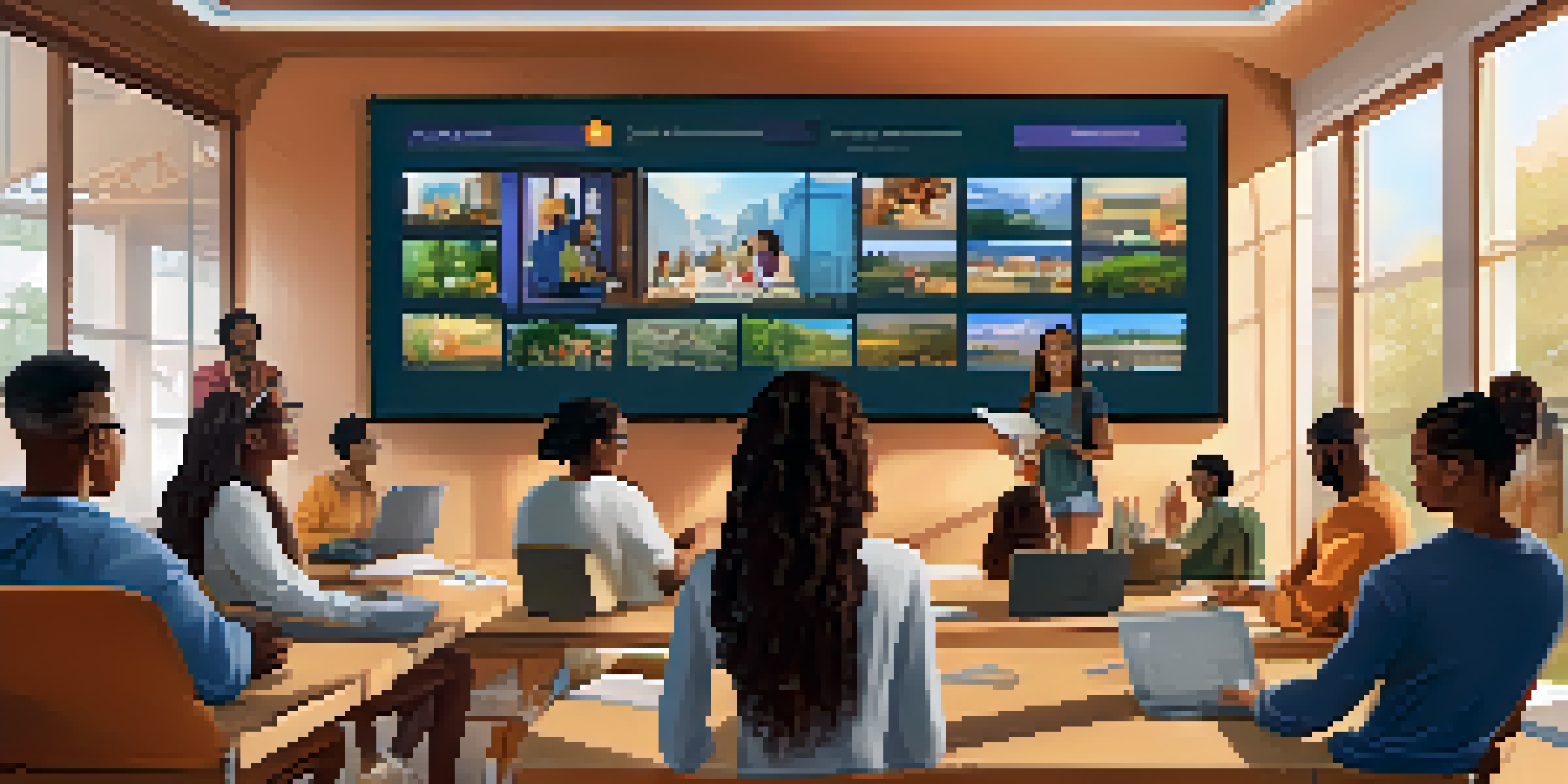Fostering Collaboration in Online Learning Communities

Understanding Online Learning Communities
Online learning communities are platforms where students and educators connect, share knowledge, and collaborate. These communities can take many forms, such as forums, social media groups, or dedicated learning management systems. The essence of these spaces is to create a supportive environment that encourages interaction and engagement among participants.
The Importance of Collaboration in Learning
Collaboration in learning is crucial for developing critical thinking and problem-solving skills. When learners work together, they can share diverse perspectives and ideas, enriching the learning experience. This cooperative approach not only enhances understanding but also builds a sense of community, making the learning journey more enjoyable.
Collaboration Enhances Learning
Working together in online learning communities enriches the educational experience by sharing diverse perspectives.
Creating a Welcoming Environment
To foster collaboration, it’s essential to create a welcoming environment where everyone feels valued. This can be achieved by setting clear guidelines for communication and interaction, ensuring that all voices are heard. Recognizing individual contributions and celebrating achievements can further enhance the sense of belonging within the community.
Utilizing Technology for Collaboration
Technology plays a pivotal role in facilitating collaboration in online learning communities. Tools like video conferencing, collaborative documents, and discussion boards allow learners to connect in real-time, regardless of their location. By leveraging these technologies, educators can create interactive experiences that encourage participation and teamwork.
Trust Builds Community Engagement
Creating a trusting environment encourages open communication and constructive challenges among members.
Encouraging Active Participation
Active participation is the lifeblood of any learning community. Educators can encourage this by creating engaging activities that require input from all members. For instance, group projects or peer reviews not only promote collaboration but also help students develop essential communication skills.
Building Trust Among Community Members
Trust is fundamental for collaboration to thrive in any community. Establishing trust involves being transparent, respectful, and supportive. When learners feel safe to express their ideas and challenge each other constructively, the collaborative spirit flourishes, leading to deeper learning experiences.
Active Participation Drives Success
Engaging activities that require input from all members promote collaboration and improve essential skills.
Providing Feedback and Recognition
Feedback is a powerful tool in fostering collaboration. Providing constructive feedback helps learners understand areas for improvement while also recognizing their efforts encourages continued participation. Celebrating milestones and achievements within the community can motivate members and reinforce the collaborative atmosphere.
Evaluating Collaborative Efforts
Regular evaluation of collaborative efforts is key to understanding the effectiveness of the community. This can involve gathering feedback from participants about their experiences and the tools used. By assessing what works well and what needs improvement, educators can continuously enhance the collaborative experience for everyone involved.